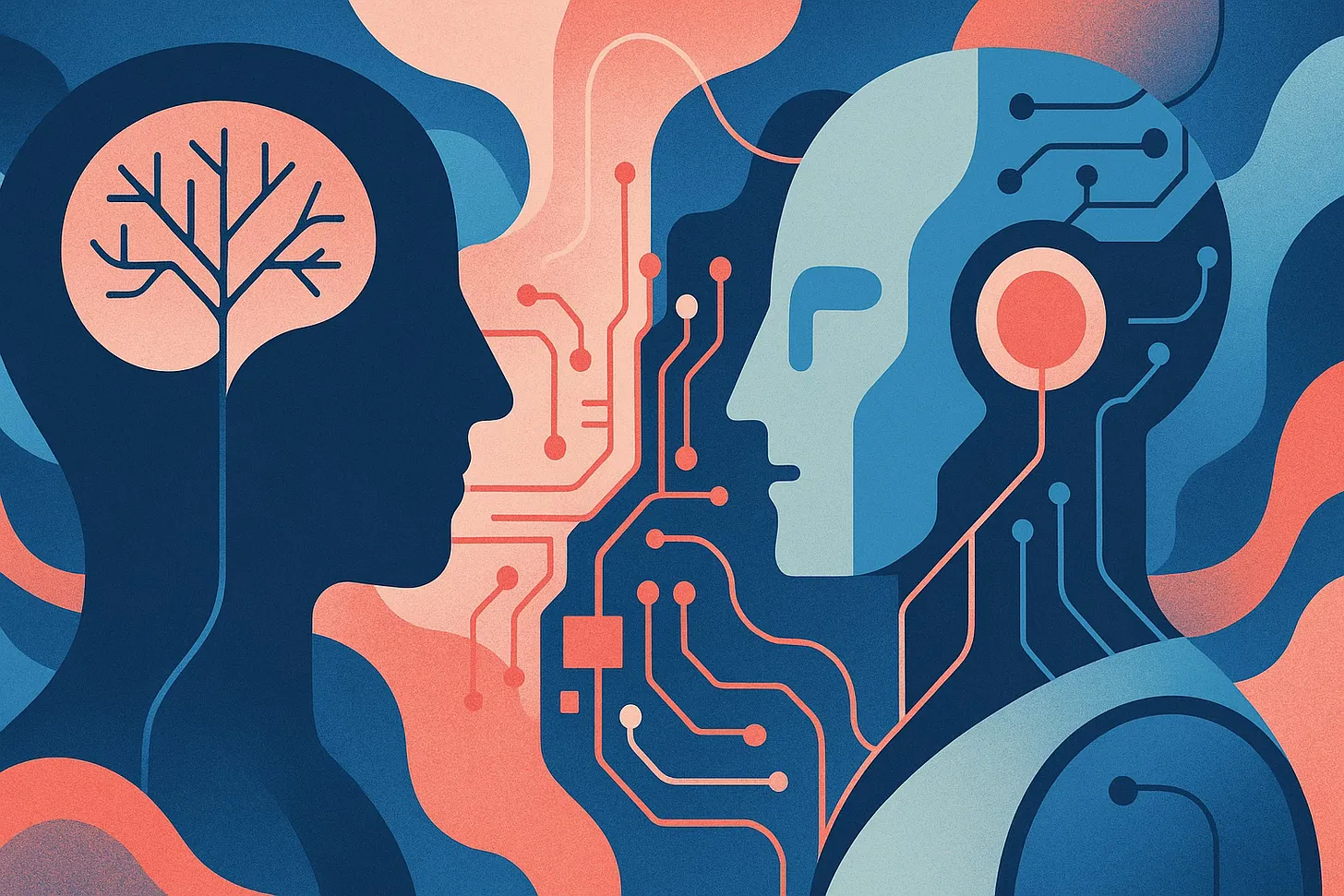timeless PinkLetters, translated from our Spanish Substack for English-speaking readers.
The Global Identity Crisis
Artificial intelligence will redefine work, but the biggest change will happen within us: an uncomfortable decision—to redesign who we are.
For centuries we’ve told ourselves a comforting story: we are not the strongest or the fastest animal, but we are the one that learns. The species that makes fire, cultivates the land, builds cities, launches satellites. Our intelligence—and our ability to transfer it into tools—is what sets us apart.
But now, for the first time in history, we are creating a tool that not only learns—it will learn better than we do.
Most AI experts agree that in the next decade we will have a superintelligence with analytical, learning, and creative capacities far beyond human levels. Opinions vary on when, but almost no one disputes the if.
And yet, we carry on as if nothing is happening.
In innovation and tech circles, the conversation is alive. But outside those spaces—in other professions, in politics, in the media—it’s barely discussed. In an attempt to ease concerns, people repeat that AI won’t take your job, it will help you do it better. Or that it will take the job of someone who doesn’t learn to use it. And some of that is true.
But it’s also true that we are heading toward a world where there simply won’t be as much work to go around. Or at least not in the way we know it today.

What if we worked significantly less?
Personally, I’m optimistic. If we can avoid catastrophic scenarios—and that’s no small “if”—superintelligence could free much of humanity from having to work to survive. Our basic needs would be covered. We could live without chasing an income. Dedicate ourselves to what truly excites us, without worrying if it’s “useful.”
But if that happens, and things go well, a new question arises: What are we when we stop being what we do?
Not long ago, while in Norway, a friend told me that some young people there lack incentives to pursue demanding careers. Why spend years becoming a neurosurgeon if a technical job also provides a comfortable life, with health, housing, and free time?
This is not an isolated phenomenon. In many Nordic countries—Denmark, Sweden, Finland, and Norway—a similar pattern can be observed. Two factors help explain it:
Lower economic returns on education. In Norway, the average salary of those with higher education is only 19% above those who finish secondary school. With a postgraduate degree, the difference rises to 34% (OECD, ScienceNorway, SpringerOpen). In contrast, in countries like the U.S. or Germany, the difference can reach 43% for undergrad and up to 87% for postgraduate degrees.
A highly compressed wage structure. Norway has one of the most equal wage distributions in the world, reducing the financial incentive to spend years in further education.
When basic needs are well covered and the economic gap between trades and professions narrows, the traditional incentive—“study to progress”—loses strength.
This phenomenon, still limited today, could expand if technological promises materialize. But our systems—governmental, educational, labor—move more slowly than the exponential curve of technological change. The transition won’t be instant. But it will come.
And you, what would you do?
I invite you to think about it today.
Imagine for a moment that AI can do your job better than you. That you have permanent access to artificial experts who complement you, in any field. And that any activity you choose allows you to live with dignity.
You don’t need to choose a career for employability, nor accept a job that doesn’t fulfill you just to guarantee stability. So then:
What would you do with your time?
What would you dedicate yourself to if work stopped being the core of your identity?
We are facing a unique opportunity as a species and as individuals: to reinvent ourselves.
But to take advantage of it, we first have to let go. If we cling to a fixed identity—forged around what we do, what we studied, what we once were—the transition may be painful and confusing. If, instead, we cultivate adaptability and embrace change, we can redesign ourselves in ways that maximize our well-being, curiosity, and sense of purpose.
I’ve been thinking about these topics for a long time. They will likely play a central role in MrPink’s next fund: the Human Connection Fund.